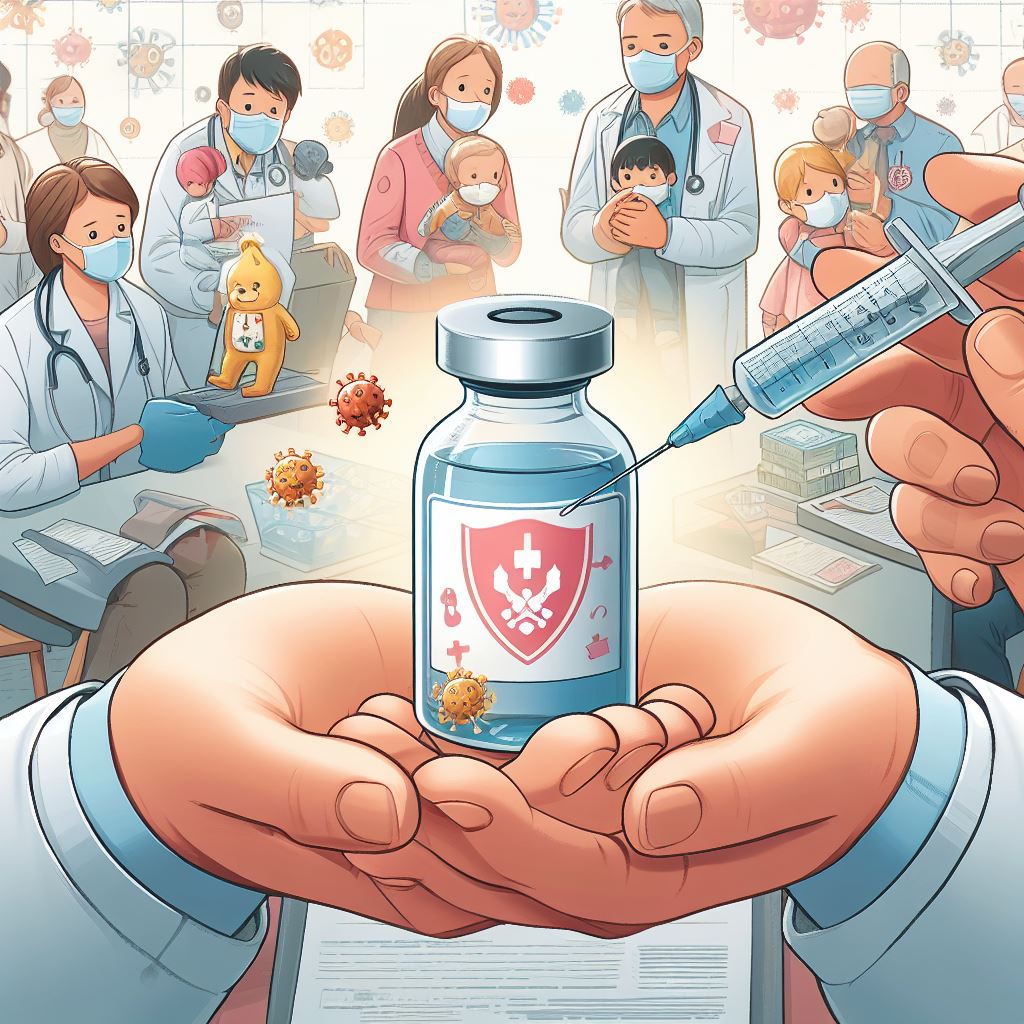In a constantly changing world, the preservation and protection of children’s health are at the center of concerns. Vaccines play a vital role in achieving this goal. With their ability to prevent preventable diseases, vaccines offer a bright future for children by providing them with better protection against various infections.
In this article, we will explore the invaluable role in the preservation and protection of children, highlighting their benefits and contribution to the health and well-being of future generations.
I. The power of vaccines and their role:
– The power of prevention:
Vaccines are the superheroes of disease prevention. They work by exposing the child’s immune system to specific, harmless antigens found in vaccines. These antigens stimulate the production of antibodies that remember the pathogen and are ready to attack it in the event of subsequent exposure. Therefore, vaccines help “prepare” children’s immune systems to fight infections before they even occur. This prevention is essential to avoid serious complications and after-effects linked to certain infectious diseases.
– Protection against preventable diseases:
Vaccines play a key role in the fight against vaccine-preventable diseases. Thanks to a robust vaccination program, many diseases such as polio, measles, mumps, rubella, diphtheria, whooping cough, hepatitis B, and many others are now under control and even eradicated in some parts of the world.
Vaccines create a protective barrier for our children, reducing the spread of these diseases and also protecting vulnerable populations who cannot be vaccinated, such as infants who are too young or people who are immunocompromised.
– The contribution to herd immunity:
Vaccines also offer us the possibility of exploiting the effect of herd immunity, also called herd immunity. When most of the population is vaccinated, the disease has difficulty spreading and reaching unvaccinated people. This results in indirect protection for children who have not yet been vaccinated or for people with weakened immune systems. By contributing to herd immunity, vaccines create a safer environment for everyone, especially vulnerable groups.
– Investment in the future:
Each vaccination is an investment in the future of our children. By protecting them from potentially serious illnesses, we allow them to grow up healthy, realize their full potential, and contribute positively to society. Vaccines allow children to focus on developing their physical, intellectual, and emotional capabilities, without fearing the harmful consequences of preventable diseases.
II. The vaccination program:
The vaccination program, also called the vaccination schedule, is a set of recommendations issued by health authorities and public health organizations, which indicate the recommended the optimal times for their administration, and the number of doses. necessary to effectively protect against certain infectious diseases.
This program is designed to guide health workers and parents on how to vaccinate children and adults, taking into account age, risk factors, and disease prevalence in a given region.
The objective is to ensure adequate vaccination of the population and prevent the spread of vaccine-preventable diseases.
The vaccination program is based on solid scientific data and is regularly updated to reflect medical and epidemiological advances.
III. Future benefits of vaccines for children:
Vaccines have already brought important benefits to human health, but their future utility is also promising. Here are some future benefits of vaccines:
1. Prevention of new outbreaks:
Vaccines are essential to address new outbreaks of emerging infectious diseases. The Covid-19 pandemic is an example. The rapid development of effective vaccines against the SARS-CoV-2 virus represented an important step in the fight against the spread of the disease.
2. Fight against non-communicable diseases:
Vaccines traditionally associated with the prevention of infectious diseases are broadening their scope of application. For example, vaccines are being developed against certain types of cancer, such as the cervical cancer vaccine (against human papillomavirus) and the liver cancer vaccine (against hepatitis B). These vaccines offer the possibility of preventing serious illnesses.
3. Reducing antimicrobial resistance:
Effective vaccination can reduce the incidence of bacterial infections, thereby reducing the need to use antibiotics. This helps prevent antimicrobial resistance, a serious public health problem.
4. Improved vaccination coverage:
Advances in vaccine formulation, such as more stable vaccines or improved delivery technologies (such as needle-free or orally administered vaccines), can make vaccination easier, particularly in settings in remote regional areas where cold storage can be a challenge.
5. Personalized vaccination:
Immunological research is moving towards the creation of more personalized vaccines. By better understanding individual genetic characteristics, it will be possible to develop vaccines tailored to each person, thereby maximizing the effectiveness of protection while reducing the risk of side effects.
6. Reduce disease prevalence:
Existing vaccines continue to reduce the prevalence of many diseases, such as measles, polio, and whooping cough. This has a major impact on the health of populations, reducing morbidity and mortality, as well as healthcare costs.
7. Promote global health:
It is essential to achieving global health goals, including the United Nations Sustainable Development Goals. Vaccination is linked to reducing child mortality, improving maternal health, and combating pandemics, thereby contributing to global health.
8. Constant innovation:
Research in vaccinology continues to advance. Scientists are exploring new vaccination strategies, such as messenger RNA vaccines used for COVID-19 vaccines, as well as new vaccine candidates for various diseases. This ongoing research is paving the way for further advances in disease prevention.
In summary, the future benefits are broad and promising. These include preventing new epidemics, combating non-communicable diseases, reducing antimicrobial resistance, improving vaccination coverage, personalizing vaccines, reducing the prevalence of diseases, promoting health care, and constant innovation.
Conclusion:
Vaccination is a valuable tool to preserve and protect the health of children. It provides preventative protection against preventable diseases, reduces the spread of infections, and contributes to herd immunity. By investing in vaccination, we demonstrate our commitment to a bright future for our children, where they can thrive in complete safety. As we advance the research and development of new vaccines, we continue to support immunization programs and promote universal access. Together, we can build a world where children’s health is an unquestionable priority.

